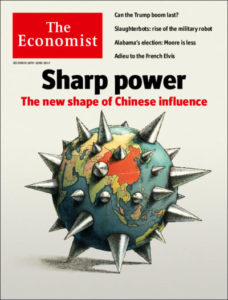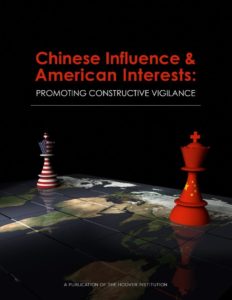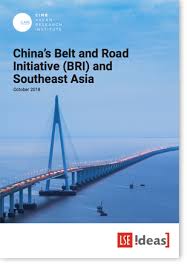 China is pushing to build up cultural “soft power” to complement the China Pakistan Economic Corridor (CPEC), a $60 billion infrastructure program it has launched as part of the Asian giant’s flagship “Belt and Road” project. Over the past year, China has sent the state-owned Pakistani Television Corporation and other commercial television channels a series of documentaries, dramas and other television programming for free, officials from PTV told Reuters:
China is pushing to build up cultural “soft power” to complement the China Pakistan Economic Corridor (CPEC), a $60 billion infrastructure program it has launched as part of the Asian giant’s flagship “Belt and Road” project. Over the past year, China has sent the state-owned Pakistani Television Corporation and other commercial television channels a series of documentaries, dramas and other television programming for free, officials from PTV told Reuters:
There is a harder edge to some of China’s soft power, notably in its response to criticisms of the Belt and Road initiative as a neo-colonial project, promoting environmentally damaging projects such as coal-fired power plants that benefit Chinese companies more than Pakistan.
Media and think tank officials from both nations plan to set up a “Rapid Response Initiative System” to counter negative perceptions and stop “fake news” about China-Pakistan projects, some of which have garnered increasing scepticism of their economic benefits and criticism of the environmental cost.
 China’s military expansion and commercial push into Europe is aimed at redefining the global trade and security system at the expense of the democratic West. Europe and the U.S. need to wake up to the challenge, says a leading analyst.
China’s military expansion and commercial push into Europe is aimed at redefining the global trade and security system at the expense of the democratic West. Europe and the U.S. need to wake up to the challenge, says a leading analyst.
Beijing’s challenge to the United States, and the West in general, is systemic, and intent on redefining the existing global trading regime, the structure of our alliances, and, last but not least, the existing framework of norms and values that has historically favored the democratic West, argues Andrew A. Michta, the dean of the College of International and Security Studies at the George C. Marshall European Center for Security Studies:
After four decades of misplaced expectations that the PRC’s export-driven modernization would bring about democratization, and that Beijing would opt for merging its trajectory with that of the larger global trade and security system, the United States is now confronted with a near-peer competitor intent on assembling a constellation of states to challenge America and its allies. For three post-Cold war decades, encomia for the internationalization of manufacturing and the inevitable triumph of our normative institutions served to push the cause of China’s ever-deeper integration with the West.
So it is perhaps ironic that Sino-American competition is now gearing up to spread beyond the Indo-Pacific, deep into the European part of the Eurasian Rimland, he writes for The American Interest. RTWT
 In regions such as the Western Balkans where the interests of local political elites, who retain power by catering to key patronage networks, overlap with China’s high tolerance for corruption, Beijing’s way of doing business exacerbates existing problems surrounding transparency and accountability, according to the National Endowment for Democracy’s Christopher Walker.
In regions such as the Western Balkans where the interests of local political elites, who retain power by catering to key patronage networks, overlap with China’s high tolerance for corruption, Beijing’s way of doing business exacerbates existing problems surrounding transparency and accountability, according to the National Endowment for Democracy’s Christopher Walker.
The situation in Central Europe and the Balkans, where young, aspiring or vulnerable democracies predominate, is also relevant, he told a United States Senate Foreign Relations Committee hearing on China’s sharp power:
In countries throughout those regions there are indications that China has sought to utilize various forms of capital inflows, including equity, debt, and aid, to achieve geostrategic aims and divert the region from a trajectory of integration into the community of democratic states. Regional initiatives, such as China’s “16+1” initiative (now “17+1” since the recent addition of Greece to this grouping) to strengthen bilateral ties with primarily former Eastern Bloc countries, offer Beijing an easy alternative to dealing with the EU as a whole. RTWT
But fears of a new Cold War between China and the West are exaggerated, observers suggest.

LSE
The U.S.-Soviet relationship was almost entirely a political and military rivalry. The U.S.-China relationship is far more complex. Trade between the two countries was more than $700 billion last year. Some 350,000 Chinese students study at American universities. Large numbers of tourists jet between the two countries daily, NPR reports.
All this helps reduce the likelihood of a full-fledged conflict, said Susan Thornton, a former senior State Department official for Asian affairs. She thinks the Cold War analogy is overblown, but she is concerned.
“I do fear that we are headed into an era of unceasing confrontation, where the U.S. is seeking to challenge China on every front, from military to economic to technological to ideological to soft power,” said Thornton, who teaches at Yale Law School.







